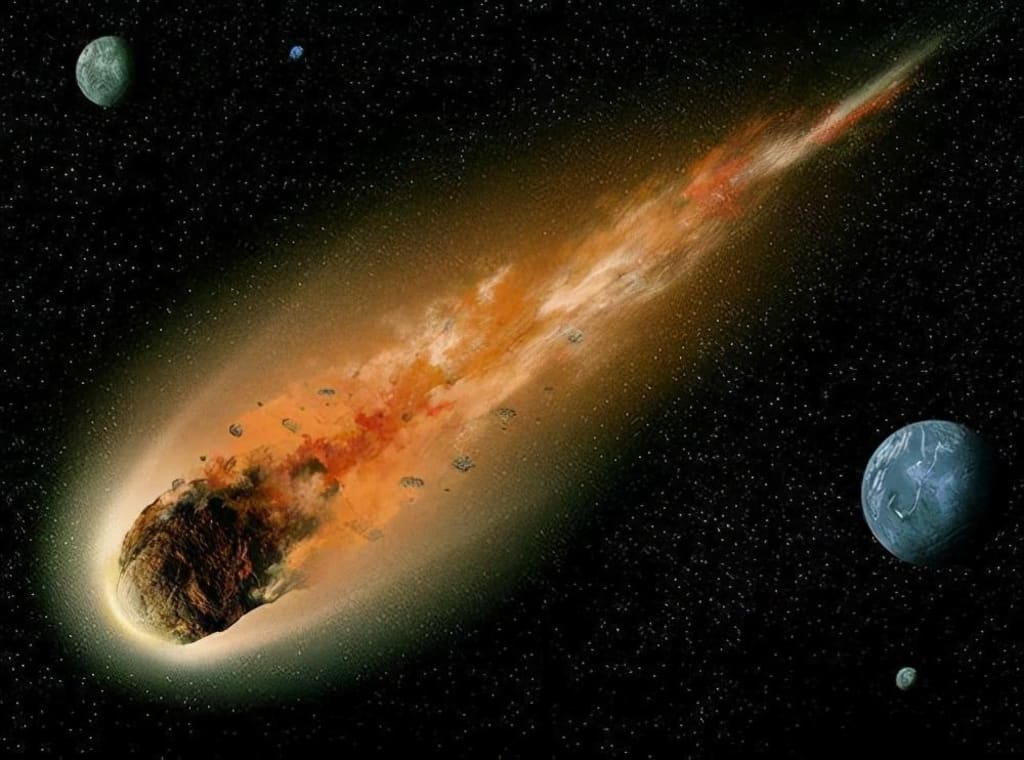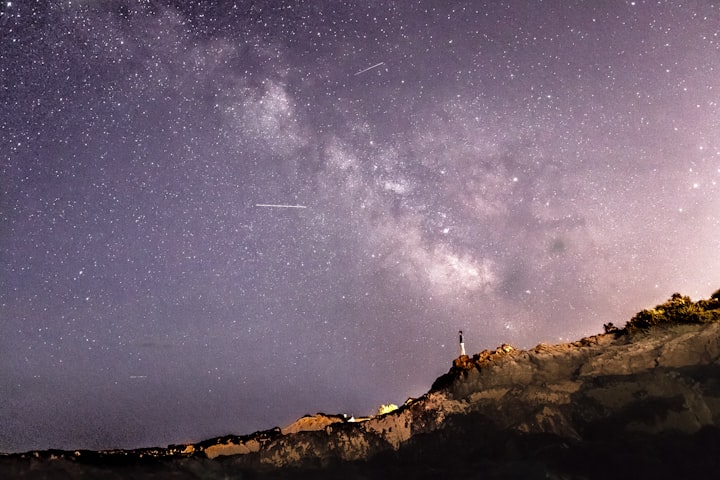Why are meteorites able to burn in space?
You'll understand after reading it.

Why are meteorites able to burn in space? The sky and earth are vast, mysterious, and desirable. As we all know, there are countless galaxies in the universe, and our solar system is just one of them. As the planet of intelligent life in the solar system, the Earth was born at the beginning of mankind, and after millions of years of evolution and growth, today's mankind has embarked on the road of rapid technological development, stepped out of the Earth and started to explore the universe.
Many young people like to look up at the stars at night to see if there will be a human stream and then make a quick wish. The moment a meteor appears is so beautiful that it fascinates many people, and a meteor shower is even more dazzling, except that meteor showers are rare and may not happen for decades. People have long known that these meteors are meteorites from the sky.
In the modern era of advanced technology, people are not unfamiliar with meteorites, they know that meteorites are small celestial bodies or asteroids from space. However, many people know that meteorites enter the earth burning, and many people observe meteorites in space with astronomical telescopes that are also burning. So there is a question: there is no oxygen in space, so why meteorites can still burn? Now let's listen to how scientists explain this phenomenon, I believe your will hear their explanation will be clear.
In the beginning, we should understand the common sense: the combustion of any material must meet two conditions: one is a combustible material, the second is a fuel material, and the fuel material of most materials on Earth is oxygen. Even nuclear fusion occurs inside the sun, and also meets the two conditions of material combustion, otherwise, fusion will not happen.
So, what is the fuel material of space meteorites? This question itself is wrong, we must understand a reason: meteorites in space can not burn, and the reason is also very simple because space is a vacuum environment, there is no fuel material, whether meteorites or other objects can not burn. If this is true, then what about the burning of meteorites that we see?
To this question, we can explain the meteorite from two situations, when it is flying in space at high speed and when it enters the atmosphere. In the first case, when the meteorite is still flying in space, it is not called a meteorite, we call it a meteorite, it is when it falls to the ground after passing through the atmosphere, and in space, we call it a meteoroid or a meteorite mother.
From astronomical telescopes, we can see the burning state of meteorites in space when they fly at high speeds, while others do not burn, but are in a burning-like state formed by ice crystals on their surfaces that evaporate or fall off continuously while flying at high speeds, and then gather together under the effect of high-speed motion to form a tail disk.
As far as we know, in space, these meteoroids are basically out of orbit from the distant asteroid belt or the Kipper belt at the edge of the solar system, which is too far from the sun and extremely cold. Many objects in the asteroid belt or Kipper belt have icy water, and these small objects bring a lot of ice crystals in the process of leaving their orbits and moving toward the center of the solar system.
The closer to the Sun, the higher the temperature and the faster the meteoroids themselves move, so the ice crystals on the meteoroids start to melt or fall off, and then gather in the tail of the star, which looks like a burning tail, which is best illustrated by the comet, which the ancients called the "broom star", an ominous omen.

This is what happens when a meteoroid burns in space. When it falls into the atmosphere, the speed gets faster and faster, and this time it has huge friction with the atmosphere, which generates heat, generates enough heat, and then burns through the combustion gas. When a meteorite falls into the Earth's atmosphere, the fuel gas is mainly oxygen, if it falls into other planets with the atmosphere, the fuel gas is not necessarily oxygen, but there are other gases as well.
The meteorite burns when it falls into the atmosphere, which is what it burns, and it is because it burns that it burns out or becomes small enough that it does not cause major damage to the ground before it hits it. With no atmospheric barrier, meteoroids can hit the Earth's surface directly, just like the Moon, with great destructive force.
The ability of the Earth to give birth to live is related to its thick atmosphere. If the Earth had no atmosphere, it would not have given birth to life, and even if it did, it would have become extinct again and again by the impact of meteorites. In fact, in the 4.6 billion years of the birth of the Earth, there were five biological extinctions, the last one was 65 million years ago because of the asteroid impact on Earth, which led to the extinction of the dinosaurs.
I believe that after seeing the above explanation, friends should understand why meteorites can burn in space, they do not burn, but just look as if they are burning. Although many of our friends love to see the division of meteors in the night sky, we still expect fewer meteors in the night sky of the Earth, which is a beautiful danger. Most meteoroids burn up after entering the Earth's atmosphere, which does not pose an impact risk to the Earth, but if larger asteroids or special metallic meteorites are encountered, there is a risk that the atmosphere will be deprived of energy and the impact on the surface will produce a huge destructive force.
The surface of the solar system looks calm, but there are many asteroids. The asteroid belt between Mars and Jupiter has no less than 100,000 asteroids, and the Kipper belt at the edge of the solar system has an incalculable number of asteroids, which will pose a threat to the Earth if they appear.
Therefore, scientists are also actively exploring technologies and methods to defend or destroy asteroids. Only when humans have the technology and ability to defend against asteroid impacts can the Earth be truly and completely worry-free; otherwise, if another asteroid directly hits the Earth as it did 65 million years ago, we will have no way to defend ourselves but to watch it crash into the Earth and then meet the sixth biological extinction on Earth.
About the Creator
Many A-Sun
Where your interests lie, that's where your abilities lie.






Comments
There are no comments for this story
Be the first to respond and start the conversation.